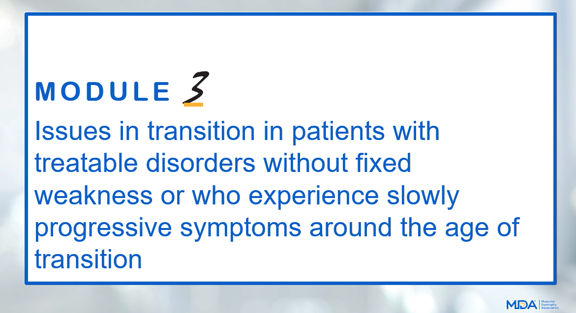Medical Educational Resource
We're accelerating the delivery of treatments and cures.
Transition in Patients with Treatable Disorders without Fixed Weakness or Who Experience Slowly Progressive Symptoms around the Age of Transition
Activity Snapshot
This activity has received an educational grant from PTC Therapeutics Inc.
Faculty

Children’s Hospital of Philadelphia

Perelman School of Medicine at the University of Pennsylvania

The Children's Hospital of Philadelphia Neuromuscular Program

The Children’s Hospital of Philadelphia

Hospital of the University of Pennsylvania, Department of Neurology
The transition from pediatric to adult care is a challenging time for patients with neuromuscular disease and their families, as well as for providers. Increased use of disease-modifying treatments will likely lead to increased numbers of patients going through the transition process, and providers need to be aware of best practices to ensure this process is beneficial to all stakeholders. Part three of this series will focus on neuromuscular disease patients who have treatable disorders without fixed weakness or who experience slowly progressive symptoms around the age of transition.
